Sun protection is a crucial aspect of maintaining healthy skin. UV radiation from the sun can lead to a multitude of skin issues, including premature aging, sunburn, and even skin cancer. With the increasing awareness of the harmful effects of UV radiation, many people have started incorporating sun protection into their daily skincare routine. However, the effectiveness of daily moisturizers with SPF 15 in providing sufficient sun protection has been a topic of debate among skincare enthusiasts.
In this blog, we will delve into the basics of SPF and sunscreen to understand how they work to protect our skin. We will then evaluate the effectiveness of SPF 15 in daily moisturizers and determine whether it provides adequate sun protection. Additionally, we will provide tips on choosing the right sunscreen for your skin type and lifestyle to ensure that you are fully protected from the sun's harmful rays.
It is important to note that while daily moisturizers with SPF 15 may seem like a convenient option, they may not be enough to provide complete sun protection, especially for those with fair skin or those who spend extended periods in the sun. By the end of this blog, you will have a better understanding of the importance of sun protection and the different factors to consider when choosing a sunscreen to keep your skin healthy and glowing.
Understanding SPF and Sunscreen Basics
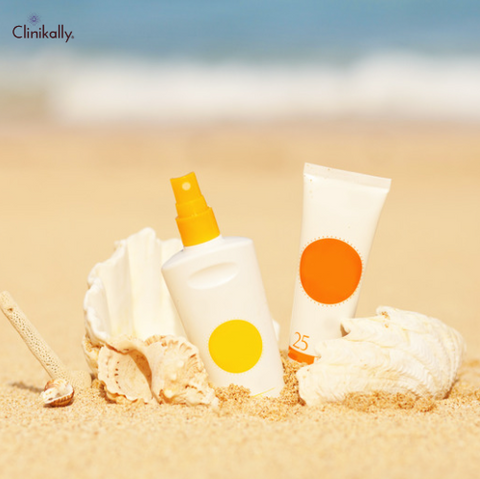
SPF stands for Sun Protection Factor, which measures the level of protection a sunscreen provides against UVB radiation. UVB rays are the main cause of sunburn and skin cancer, but they only penetrate the top layer of skin. UVA rays, on the other hand, penetrate deeper into the skin and are the primary cause of premature aging.
Sunscreen works by absorbing or reflecting UV radiation. Chemical sunscreens contain organic compounds that absorb UV radiation, while physical sunscreens contain mineral particles that reflect UV radiation. Broad-spectrum sunscreens provide protection against both UVA and UVB radiation.
What is SPF and How Does It Work?
SPF is a measure of how much longer you can stay in the sun without getting sunburned when wearing sunscreen compared to not wearing sunscreen. For example, if you would normally burn after 10 minutes in the sun, an SPF 15 sunscreen would allow you to stay in the sun for 150 minutes (10 x 15) before burning.
However, it's important to note that SPF only measures protection against UVB radiation, not UVA radiation. That's why it's important to choose a broad-spectrum sunscreen that provides protection against both types of radiation.
UVA and UVB Protection: The Importance of Broad-Spectrum Sunscreens
UVA radiation is responsible for skin damage, premature aging, and an increased risk of skin cancer. UVB radiation is responsible for sunburn and an increased risk of skin cancer. Both types of radiation are harmful and should be protected against.
Broad-spectrum sunscreens provide protection against both UVA and UVB radiation. Look for sunscreens that contain ingredients like avobenzone, titanium dioxide, and zinc oxide for broad-spectrum protection.
Evaluating the Effectiveness of SPF 15 in Daily Moisturizers
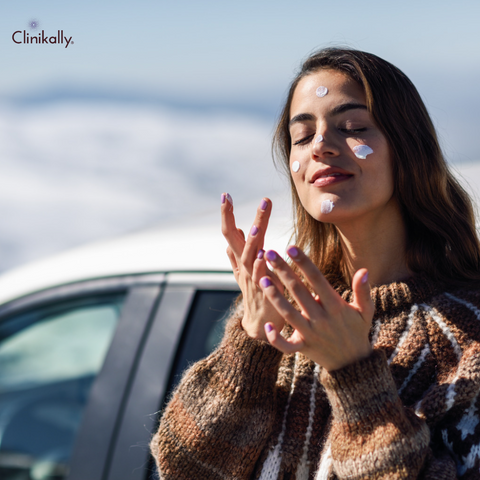
Now that we understand the basics of SPF and sunscreen, let's evaluate the effectiveness of SPF 15 in daily moisturizers. While SPF 15 is better than no sun protection at all, it may not be enough to provide adequate protection against sun damage. Let’s learn more about it.
How Much Sun Protection Does SPF 15 Provide?
As we mentioned earlier, SPF 15 provides protection against UVB radiation and allows you to stay in the sun 15 times longer than you would without sunscreen. However, it only blocks about 93% of UVB radiation, meaning that 7% still penetrates the skin.
In addition, most people don't apply enough sunscreen to achieve the full SPF protection listed on the label. The American Academy of Dermatology recommends using about 1 ounce (a shot glass full) of sunscreen to cover the entire body and reapplying every two hours or immediately after swimming or sweating.
Factors Influencing Sunscreen Effectiveness
The effectiveness of sunscreen depends on several factors, including the amount applied, frequency of application, type of sunscreen, and individual skin type. People with fair skin or a history of skin cancer may need higher SPF protection than those with darker skin or less sun exposure.
Best Practices for Sun Protection and Skin Care
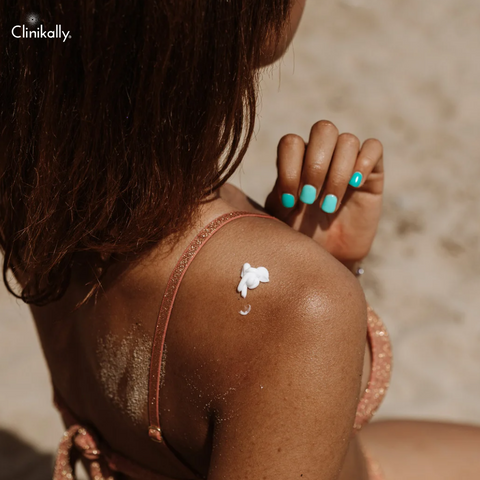
Protecting your skin from the sun is crucial for maintaining healthy and youthful-looking skin. In addition to daily moisturizers with SPF 15, using higher SPF sunscreens and proper sunscreen application techniques are essential for optimal sun protection. In this blog, we will discuss some best practices for sun protection and skin care, including the use of higher SPF sunscreens and proper sunscreen application and reapplication techniques.
Using Higher SPF Sunscreens for Optimal Protection
SPF (Sun Protection Factor) measures the effectiveness of sunscreen in protecting your skin from UVB rays, which are responsible for sunburn and skin cancer. SPF 15 blocks about 93% of UVB rays, while SPF 30 blocks about 97%. However, using higher SPF sunscreens (SPF 50 or higher) can provide even more protection against UVB rays. Experts recommend using sunscreen with at least SPF 30 for daily use and higher for extended periods in the sun.
Proper Sunscreen Application and Reapplication Techniques
Applying sunscreen properly is just as important as using the right SPF. To ensure adequate protection, apply sunscreen generously to all exposed skin areas, including the face, neck, ears, and hands. Be sure to use a broad-spectrum sunscreen that protects against both UVA and UVB rays.
Reapplication is also crucial for maintaining sun protection throughout the day. Experts recommend reapplying sunscreen every two hours, or immediately after swimming or sweating. It's important to apply enough sunscreen to achieve the advertised level of protection, which is about two tablespoons (or one shot glass full) for the average adult body.
In addition to using higher SPF sunscreens and proper sunscreen application and reapplication techniques, there are other best practices for sun protection and skin care. These include avoiding the sun during peak hours (10 a.m. to 4 p.m.), wearing protective clothing and accessories (such as hats and sunglasses), and staying hydrated to keep your skin healthy and moisturized.
Protecting your skin from the sun is essential for maintaining healthy and youthful-looking skin. By using higher SPF sunscreens and proper sunscreen application and reapplication techniques, along with other best practices for sun protection and skin care, you can ensure that your skin is fully protected against the harmful effects of UV radiation.
Choosing the Right Sunscreen for Your Skin Type
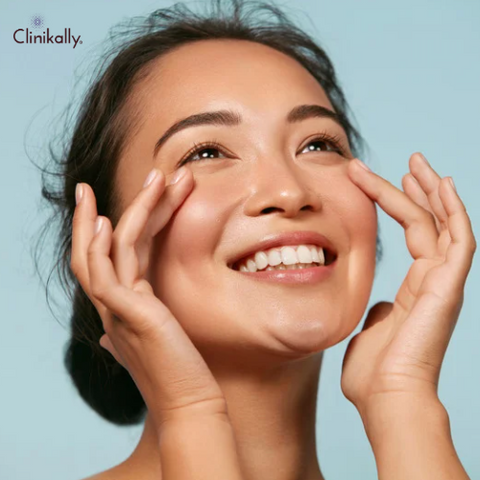
Not all sunscreens are created equal, and it's important to choose one that's appropriate for your skin type and any special concerns you may have. Here are some options to consider:
Sunscreens for Sensitive Skin and Special Concerns
If you have sensitive skin or are concerned about certain ingredients in sunscreen, look for a physical sunscreen that contains zinc oxide or titanium dioxide. These ingredients are less likely to cause irritation or allergic reactions.
Water-Resistant and Sport Sunscreens for Active Lifestyles
If you're planning on spending time in the water or sweating during physical activity, choose a water-resistant or sport sunscreen. These formulas are designed to stay on the skin even when wet or sweaty.
The Role of Sunscreen in a Comprehensive Skin Care Routine

Sunscreen is a crucial component of any comprehensive skin care routine. In addition to protecting against sun damage and skin cancer, sunscreen can also help prevent premature aging and promote overall skin health. Let us explore more about its role:
Sunscreen as a Key Component of Anti-Aging and Skin Health
UV radiation is a major contributor to premature aging, including wrinkles, age spots, and loss of elasticity. By wearing sunscreen every day, you can help prevent these signs of aging and keep your skin looking healthy and youthful.
Combining Sun Protection with a Balanced Skin Care Regimen
In addition to wearing sunscreen, it's important to take care of your skin through a balanced skin care regimen. This includes cleansing, moisturizing, and using products with anti-aging ingredients like retinol and vitamin C.
Expert Advice on Sunscreen Use and Skin Health
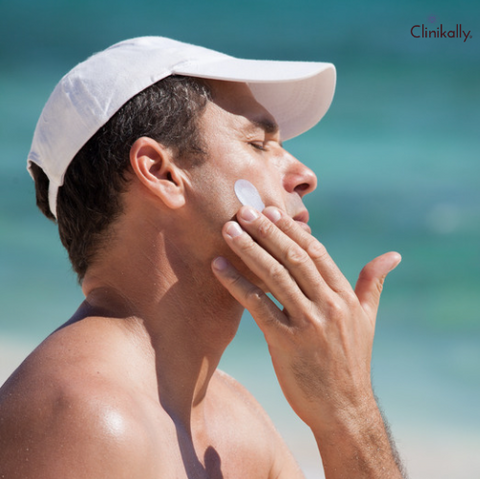
According to studies, sunscreen is the cornerstone of any skin care regimen. It's important to choose a broad-spectrum sunscreen with at least SPF 30 and to reapply every two hours or immediately after swimming or sweating. In addition, it's important to protect your skin from the sun in other ways, such as wearing protective clothing and seeking shade during peak sun hours.
Expert dermatologists also recommend incorporating other anti-aging ingredients into your skin care routine, such as retinol and vitamin C. "These ingredients can help improve skin texture, reduce fine lines and wrinkles, and promote collagen production," they say.
In conclusion, while daily moisturizers with SPF 15 provide some protection against sun damage, it's important to use higher SPF sunscreens for optimal protection. Proper sunscreen application and reapplication techniques, as well as choosing the right sunscreen for your skin type and lifestyle, are also important for effective sun protection. Sunscreen should be a key component of any comprehensive skin care regimen, along with other measures such as wearing protective clothing and seeking shade during peak sun hours. By taking these steps, you can help prevent sun damage, skin cancer, and premature aging, and keep your skin healthy and beautiful for years to come.
















